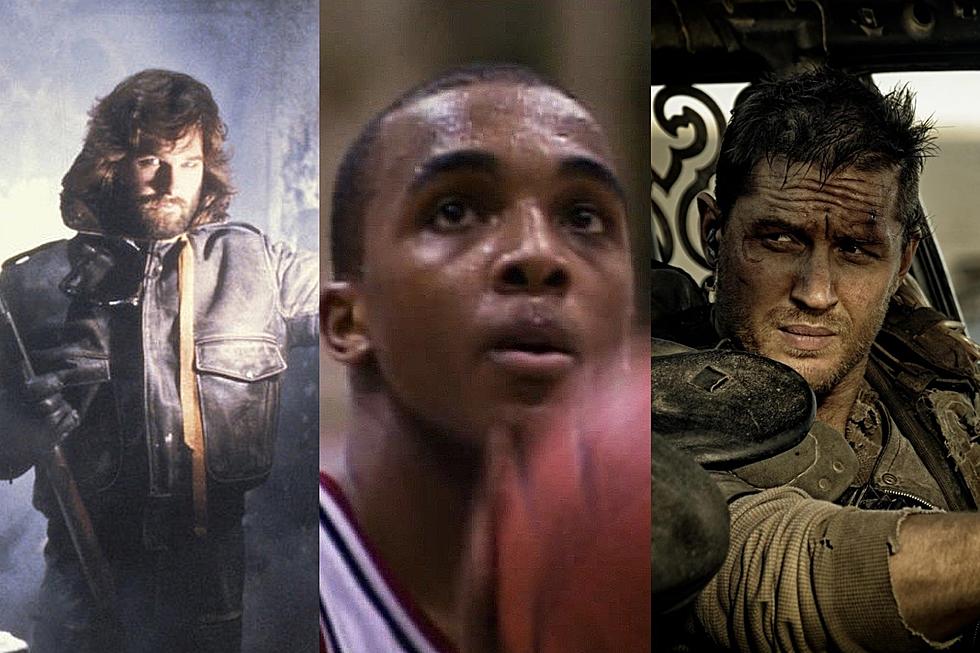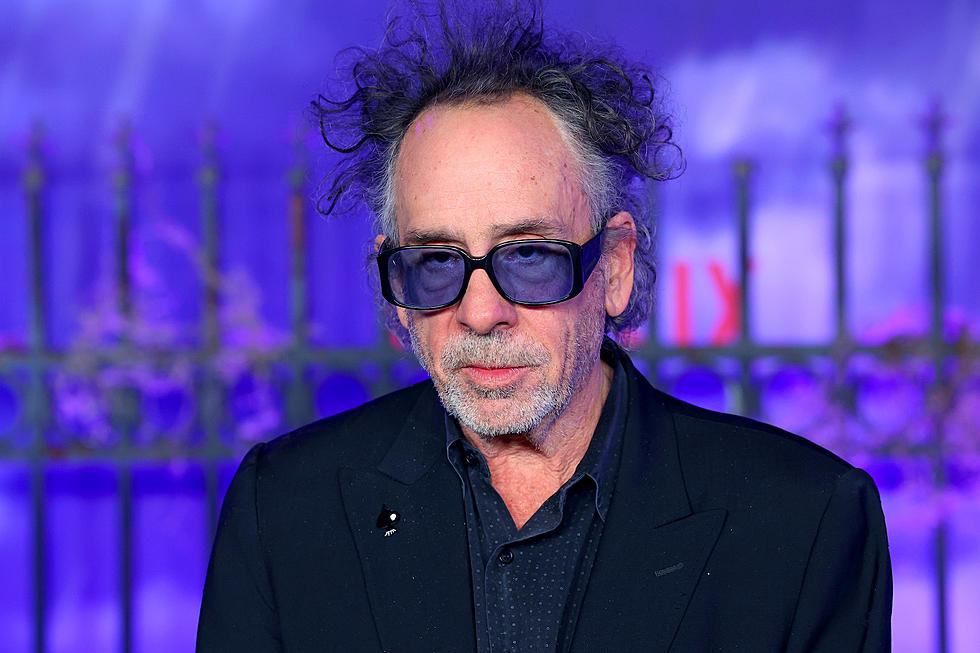
The 10 Best Wes Anderson Characters
If you can judge a filmmaker by the number of unforgettable characters he's created, than Wes Anderson is one of the all-time greats. Over the course of seven films, Anderson has introduce the world to a collection of oddballs, scumbags, dreams, loners and manic-depressives. You can always pick an Anderson character out of a line-up: look for their personality-specific clothing, their dry senses of humor and their lingering, all-too-real sadness
With the impending release of 'The Grand Budapest Hotel,' which casts over a dozen Anderson regulars in a wide variety of roles, we've delved into into his filmography to do the impossible: select his 10 best characters.
- 10
Pagoda
'The Royal Tenanbaums'Wes Anderson's characters are so meticulously shot and costumed that even the minor roles with few lines can become unforgettable. Take the character of Pagoda in 'The Royal Tenenbaums.' A fixture in many scenes of the movie but rarely the focus, Kumar Pallana's trusty (and occasionally, very untrustworthy) hitman-turned-manservant has more personality while standing in the background behind the movie stars than most leading characters in other movies. Frequently utilized as a visual punchline and as part of the film's impressive and beautiful tableaus, Pagoda becomes a friendly and familiar sight throughout 'The Royal Tenenbaums' and each of his few lines is one of the best in the movie.
TouchstoneTouchstone - 9
Captain Sharp
'Moonrise Kingdom'How great is Captain Sharp, the well-intentioned but slightly bumbling police officer in 'Moonrise Kingdom'? He's so great that the role shakes Bruce Willis out of his acting doldrums and forces him to give one of his best, funniest and most sensitive performances. Sharp is wildly different from the average Willis hero and his early scenes are served well by undermining our expectations of the actor. However, the second half of the film sees Sharp move away from being a send-up of the Bruce Willis persona, revealing him to be a quietly noble and brave schlub. Openly blue collar heroes are hard to find in Anderson's oeuvre and Captain Sharp is evidence against the popular opinion that he only makes movies about neurotic rich people.
FocusFocus - 8
Margot Tenenbaum
'The Royal Tenenbaums'To paraphrase 'The Simpsons,' Margot Tenenbaum is a riddle wrapped in an enigma wrapped in a fur coat. A skilled playwright, she spent her youth being constantly reminded that she was adopted and raised as an outsider in her own home by her neglectful father. When we meet up with her in the present, she's detached and borderline nihilistic, a woman who goes out of her way to destroy every relationship in her life. This is a character who could have been unbearable, but Gwyneth Paltrow gives her a sympathetic edge, occasionally letting us see the emotional wreck hidden under all of that armor. It's no wonder her adopted brother Richie is obsessed with her. If she was real, we would have so many questions to ask.
TouchstoneTouchstone - 7
Dignan
'Bottle Rocket'Wes Anderson heroes tend to come in two varieties: those with dreams and those who have given up on their dreams. Dignan is very much the former. Played by longtime collaborator and 'Bottle Rocket' co-writer Owen Wilson, Dignan is the director's first protagonist but he fits right in line with the rest, exhibiting the qualities we'd come to expect from his characters. A genuinely nice guy and a romantic, Dignan's absurd and meticulously planned scheme to become a career criminal can be read as a metaphor for filmmaking. 'Bottle Rocket' isn't about amateur criminals as much as it's about struggling artists trying to enter a field and finding it all much more difficult and complicated than they originally thought. Through it all, Dignan remains one of the most hopeful characters in Anderson's filmography, always looking on the bright side of things, even when he's doing so from a prison yard.
ColumbiaColumbia - 6
Sam and Suzy
'Moonrise Kingdom'This one's a cheat, but you can't expect us to choose one or the other, can you? While movie stars act along the fringes of 'Moonrise Kingdom,' the real story belongs to Sam and Suzy (Jared Gilman and Kara Hayward), the two young lovebirds who run away from home and vanish into the wilderness. Like Dignan in 'Bottle Rocket,' they're hopeful, unaware that harsh cruelties of the world will probably skewer their dreams and leave them as depressed and desperate as seemingly every adult in the film. 'Moonrise Kingdom' sees their relationship and their youthful optimism tested by fire (and lots of water), but we never see them grow up or grow cynical. Are they destined to be as unhappy as Suzy's parents? Will they eventually flee their isolated New England town for greener pastures? These questions remain unanswered, but the important thing is that Sam and Suzy think the answers to those questions are "no" and "yes."
FocusFocus - 5
Herman Blume
'Rushmore'Every viewing of 'Rushmore' reveals new subtleties about Bill Murray's Herman Blume. Despite his successful business and personal wealth, Blume is desperately unhappy from frame one of the film and only seems to start finding the road to recovery in the final scenes. A character this miserable could be difficult to watch, but Murray finds humor in every brutally sad moment. Like any master comedian, Murray realizes that pain is the root of all humor and treats Blume's depressions with dry sardonicism -- he's a great character because he's at peace with his unhappiness and only wallows in it when it somehow manages to get worse. There's so much going on with Blume in 'Rushmore' (his rivalry and friendship with Max, his romantic longing for Rosemary Cross) that many viewers may miss the evidence that Blume's existence is defined by his experiences in the Vietnam war. The fact that this only comes up in a few throwaway lines is all we need to know: Blume doesn't like to talk about the things that have hurt and traumatized him.
TouchstoneTouchstone - 4
Max Fischer
'Rushmore'Max Fischer is such a specific and well-defined character that you can't help but wonder how much of him is a stand-in for Wes Anderson himself. Played by frequent Anderson collaborator Jason Schwartzman, Fischer is the best and worst student at Rushmore Academy, leading dozens of clubs and organizations while failing spectacularly in his academics. His lust for importance and his desire to make a difference in everything he touches initially looks like the actions of a selfish egotist (or even a sociopath at times), but 'Rushmore' slowly reveals Fischer's past and makes him as sympathetic as any character in an Anderson production. Unlike the other students at Rushmore (and unlike so many Anderson characters), Fischer isn't from a wealthy home or a successful family. Much of the film finds him doing everything in his power to hide his blue collar background, convinced that wearing nice suits and attending prestigious schools will wash his background away. Like so many heroes, Fischer takes a nasty fall at the expense of his pride, but Fischer's story is ultimately a hopeful one, with the selfish protagonist finding balance in between the world he wants and the world he wants to leave behind.
TouchstoneTouchstone - 3
Royal Tenenbaum
'The Royal Tenenbaums'Royal Tenenbaum may be one of the greatest jerks in movie history. Played by the legendary Gene Hackman, he's a neglectful father, a liar, a cheat and all-around irresponsible human disaster ... who also just so happens to be a guy who doesn't realize that he's yearning for redemption. Royal's story of going from awful father and husband to not-too-awful father and ex-husband isn't your typical journey of self-discovery. After all, Royal only learns what he really wants out of his family when he tells a desperate lie and realizes that it's true. He's a scoundrel, but thanks to Hackman's performance and Anderson and Owen Wlson's screenplay, he's a scoundrel we can't help but love. Royal earns a lot of sympathy points by doing everything he can to rebuild the world he tore down, even if he is a decade or two too late.
TouchstoneTouchstone - 2
Mr. Fox
'Fantastic Mr. Fox'George Clooney is nothing if not effortlessly cool and 'Fantastic Mr. Fox' runs with that. In Anderson's first (and hopefully not last) foray into stop-motion animation, Clooney voices the titular character with his trademark swagger, lending a stop motion puppet of a well-dressed fox the charm of Hollywood's suavest leading man. But like the best Clooney performances, there's limitless depth under the braggadocio. 'Fantastic Mr. Fox' may be a family-friendly animated movie full of talking animals, but it's really a story about a mid-life crisis and the toll it takes on a family. The movie knows Mr. Fox is cool, but it also knows that his attempts to recapture his raucous youth are dangerous, leading to a bittersweet conclusion where our hero saves the day, but only after his family and his friends lose their homes. Mr. Fox is an animated animal, but he's a flawed, fascinating talking animal whose wardrobe puts ours to shame. He's, uh, fantastic.
20th Century Fox20th Century Fox - 1
Steve Zissou
'The Life Aquatic With Steve Zissou'Oceanographer, explorer and documentarian Steve Zissou is the quintessential Wes Anderson character. He has an awesome and eclectic wardrobe. He was a home (okay, a boat) where every room feels designed around his personality and needs. He's bitter and detached. He's a bad father. He masks his sadness with sarcasm. He's played by Bill Murray. However, Zissou isn't just a collection of Anderson cliches. What initially looks like a bunch of eccentric tics is soon revealed to be the mask of a man dealing with tremendous loss. The main joke of 'The Life Aquatic With Steve Zissou' is that the title character wants to hunt down the shark that killed his friend to get revenge. The hidden truth is that he just wants, and needs, to grieve. The climactic scene, set on board Zissou's submersible, may be the best scene in Murray and Anderson's career. Zissou, faced with the creature that killed his friend and surrounded by his friends and family, finally lets go. It's a microcosm of Anderson's films and characters as a whole: a big heart always lurks underneath the style.
TouchstoneTouchstone
More From ScreenCrush









